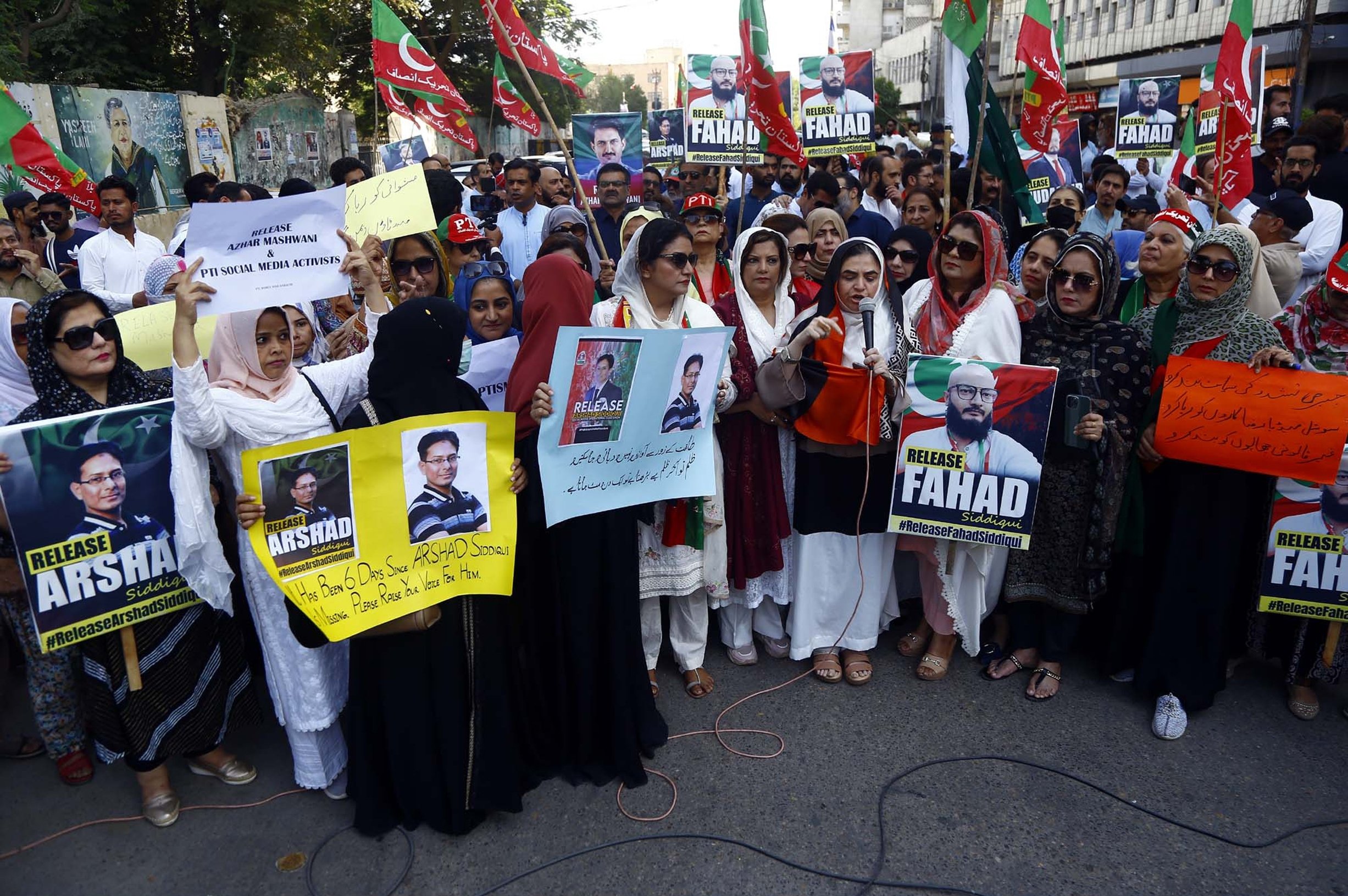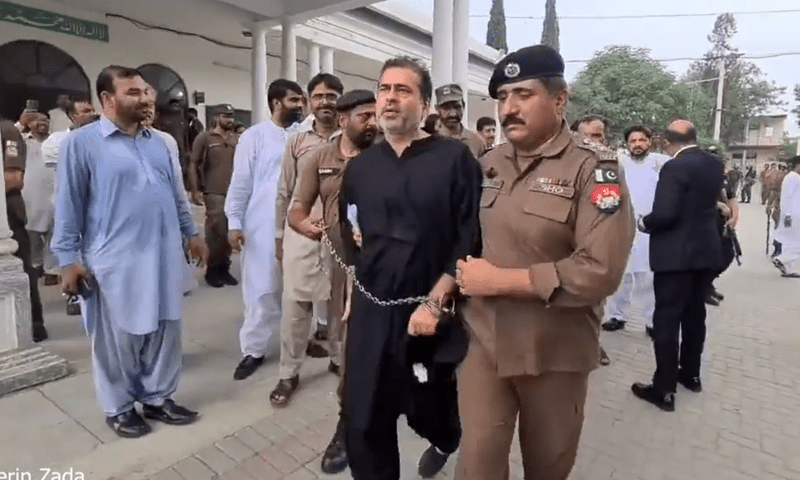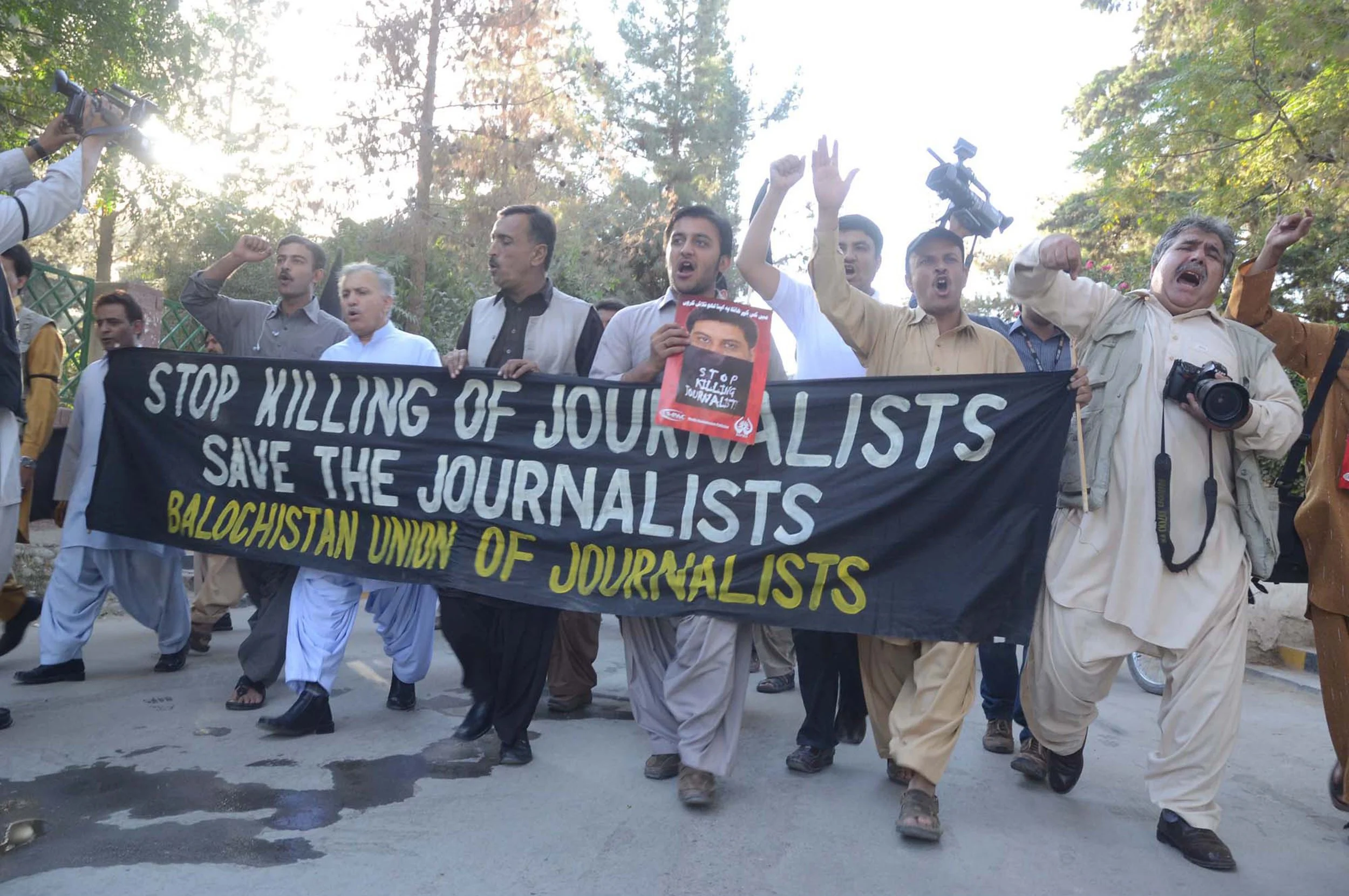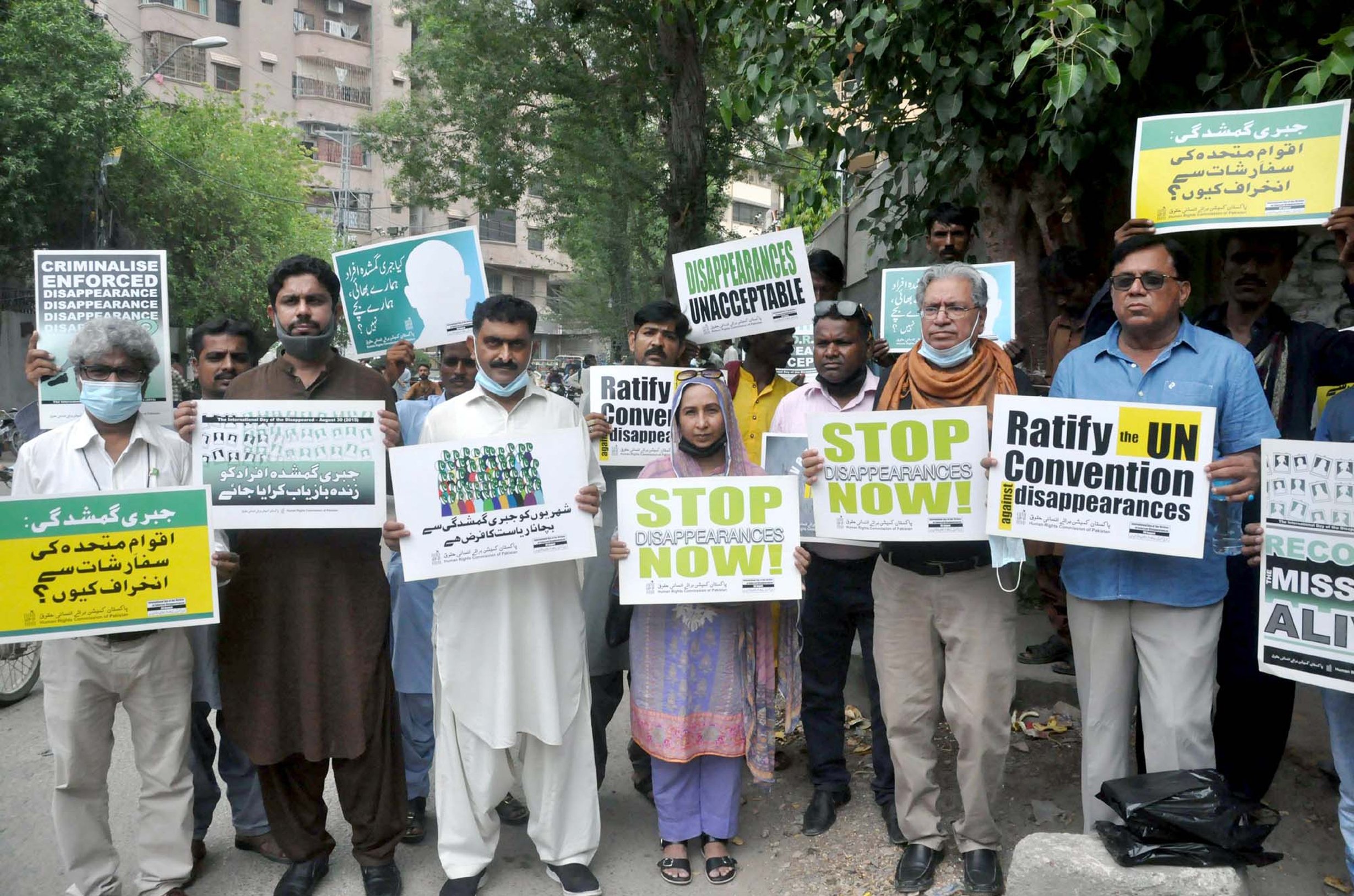Enforced Political Disappearances
A Tool to Silence Dissent
Since April 2022, Pakistan has seen a disturbing increase in enforced disappearances, targeting politicians, journalists, human rights defenders, and social media activists. These abductions reflect a broader campaign to suppress dissent, often carried out with complete impunity. Despite repeated court orders and international condemnation, enforced disappearances persist—undermining the rule of law and violating Pakistan’s international human rights obligations.
PHOTO: Activists of Tehreek-e-Insaf (PTI) are holding protest demonstration against disappearance of party leaders and workers, at press club on March 31, 2023 in Karachi.
Targeting Journalists
Journalists critical of the state have become frequent targets. Imran Riaz Khan, a well-known reporter and anchor, was forcibly disappeared in May 2023 and remained missing for over four months before being released. In May 2024, Ahmad Farhad, a Kashmiri poet and journalist, was abducted—allegedly by intelligence agencies—due to his vocal human rights activism. Though later released, he continues to face legal harassment.
PHOTO: A policeman takes journalist Imran Riaz Khan to a prison in Chakwal after he was arrested from the Attock district judicial complex on Thursday . — Credit: DawnNewsTV
Repression of Political Opponents
Members of the opposition party Pakistan Tehreek-e-Insaf (PTI) have been disproportionately targeted since the ousting of former Prime Minister Imran Khan. Numerous PTI leaders, legal advisers, and supporters have been abducted or harassed, particularly those active on social media or involved in legal advocacy. These disappearances form part of a coordinated effort to dismantle political opposition and instil fear among activists.
In Balochistan, enforced disappearances have remained a long-standing human rights emergency. Thousands of students, activists, and civilians have been abducted by state forces without charges or due process. Families are left in anguish, with no access to justice or answers about the fate of their loved ones. This practice continues to silence dissenting voices and fuels instability, while directly violating international human rights standards including the International Convention for the Protection of All Persons from Enforced Disappearance.
Ongoing Crisis in Balochistan
PHOTO: Members of Balochistan Union of Journalist pass through Zarghoon road during protest rally against killing of local T.V channel reporter on October 02, 2012 in Quetta.
UN Convention for Protection of All Persons from Enforced Disappearances
In 2010, instead of ratifying the International Convention for the Protection of All Persons from Enforced Disappearance, Pakistan established the Commission of Inquiry on Enforced Disappearances (COIED). This commission has been widely criticised for its ineffectiveness and failure to deliver justice
The International Commission of Jurists (ICJ) reported that the COIED has "wholly failed to address entrenched impunity," leaving victims and their families without redress. Despite tracing the whereabouts of some missing persons, the commission has not held a single perpetrator accountable in its years of operation. The ICJ emphasiSed that a commission that does not facilitate justice cannot be considered effective.
PHOTO: Members of HRCP protest demonstration against recovery of disappeared persons on the occasion of International Day of the Disappeared, on August 30, 2021 in Hyderabad.




